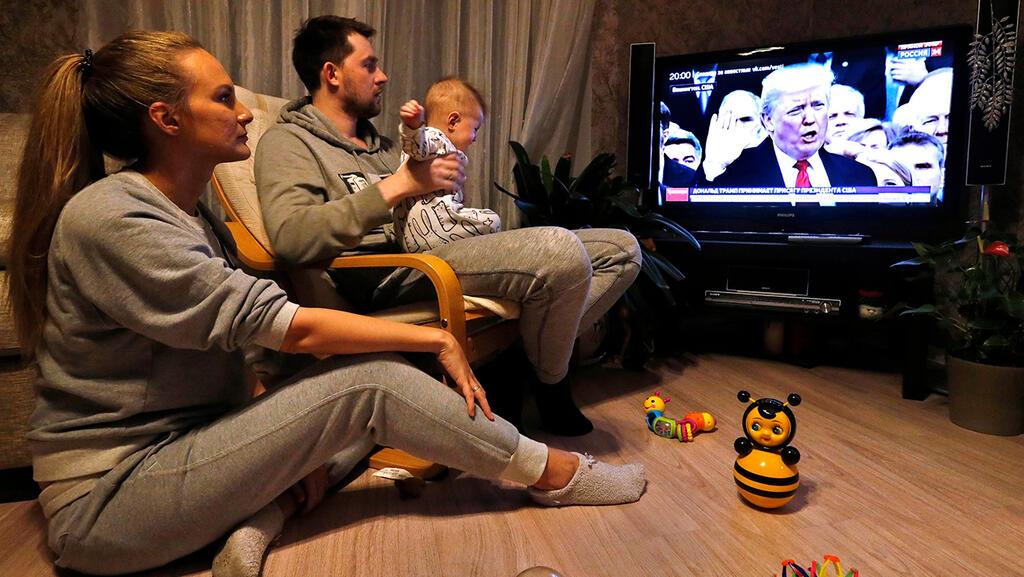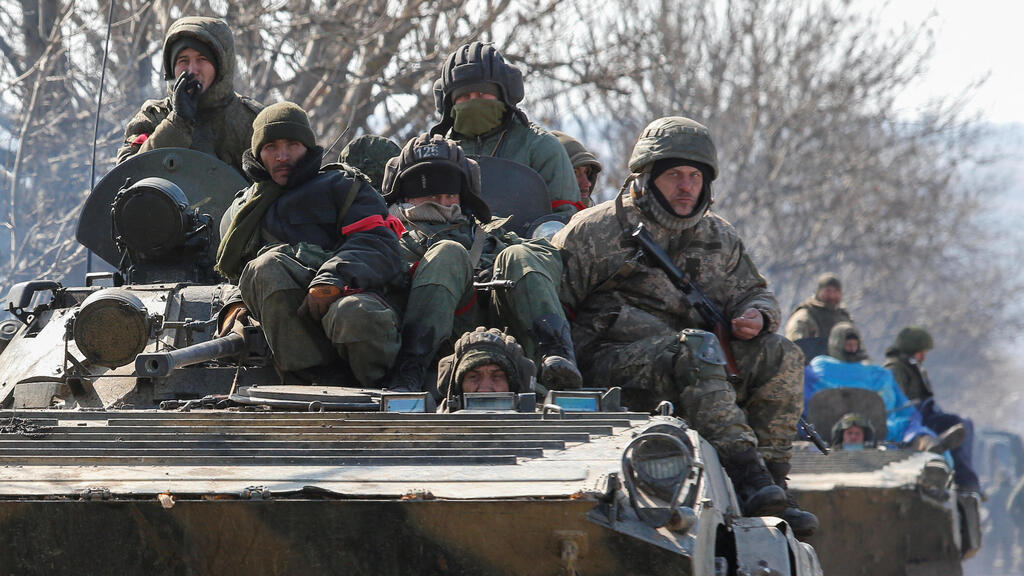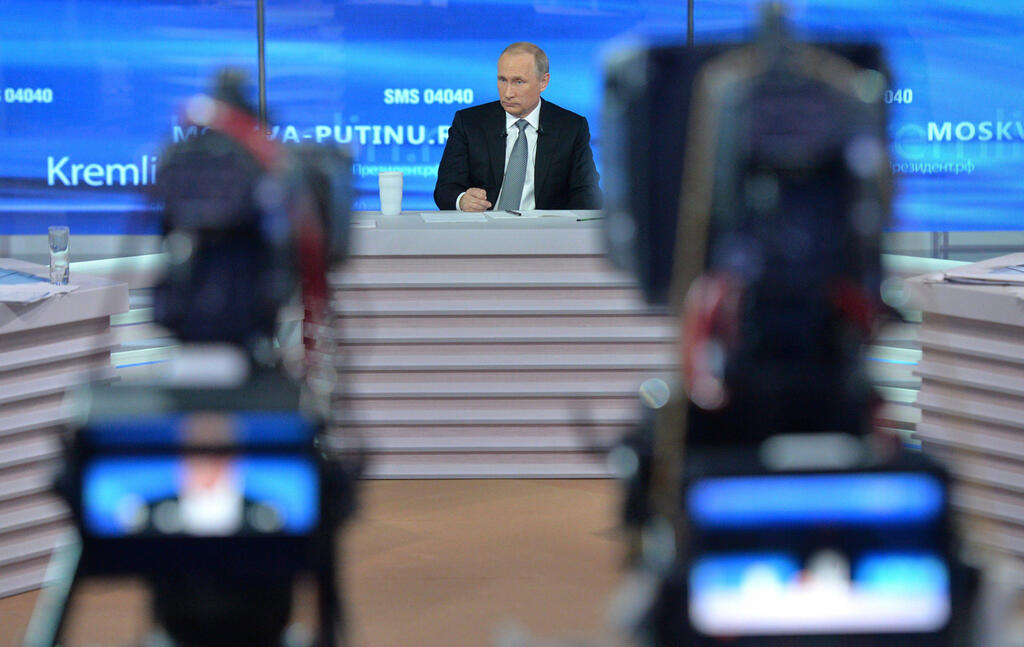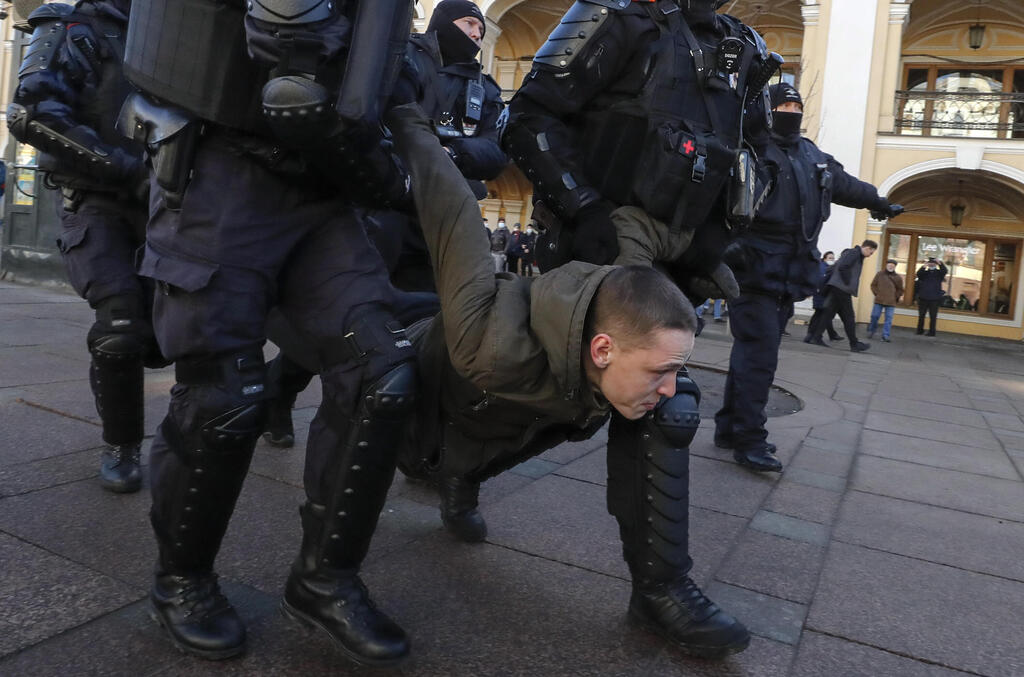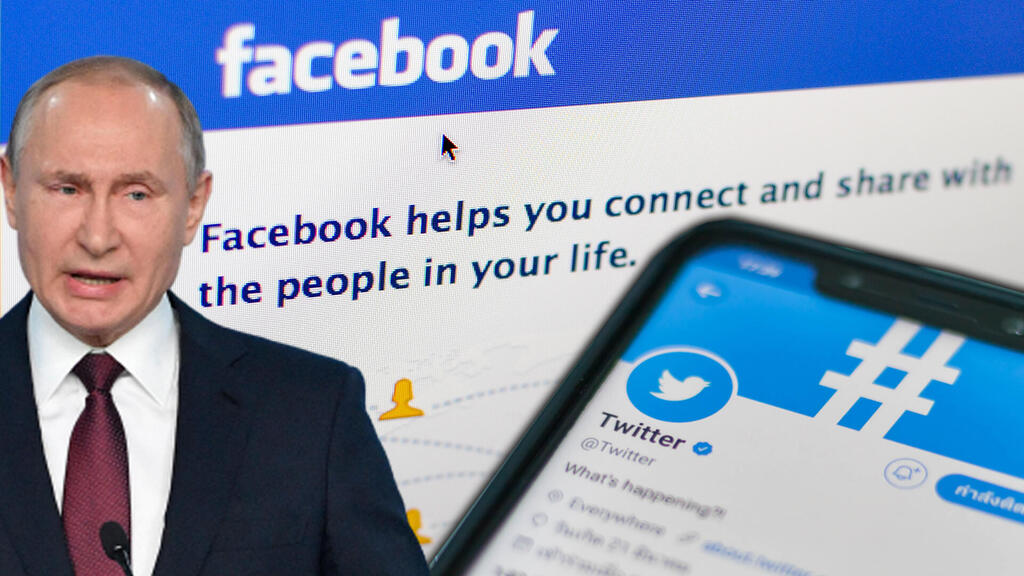Considering the political and social isolation the Russian people are experiencing from the international community, it's hard to decipher the public's stance on the Russian invasion of Ukraine. However, despite the restrictions and authoritarian nature of Russia, a large amount of the population support the ideas and goals of Putin's war, or the "special military operation"- as the Kremlin calls it.
The television set in Elena Fadeeva’s Moscow apartment works from early morning till late at night. Fadeeva, 76, lives alone and says TV is the only cure for her loneliness. Only Russian channels are available – government stations that provide mainly news and entertainment, and private ones that offer mostly movies, series, and reality TV.
She is one of approximately 60% of Russians who, according to the latest Russian Public Opinion Research Center (VTsIOM) survey, support President Vladimir Putin’s war in Ukraine. The law forbids calling it a “war,” and all Russian media, even those critical of military activity in Ukraine, refer to it as a “special military operation”.
Fadeeva’s morning starts with news – with a dynamic and edgy style of reporting, and radically different headlines and content. The bulletin doesn’t include any details on Ukrainian civilian casualties. According to the Russian Ministry of Defense, the army doesn’t target civilians. The reporter embedded with the Russian army shows rows of military equipment that, according to him, belonged to Ukrainians.
“You can see these sights everywhere. The Ukrainians run away or surrender; they often leave their equipment behind and escape,” the Russian reporter says.
The news includes revelations about Ukraine’s “secret biological program,” Ukrainian plans to invade Russia with the help of the Americans, the Grand Exit of global companies from Russia, and assurances from Russian ministers that the country’s “economy is resilient and stable.”
Then comes Anti-Fake, a program revealing the shocking reality of fake news produced by Ukrainians and the West. The anchor invites viewers to send him “fishy videos” that might have been photoshopped. “Together we will fight the wave of fake news and false allegations around us,” he says.
Fadeeva, who retired 15 years ago, watches a lot of TV. She says it’s her primary source of information and she generally trusts it.
“I know that the situation in Ukraine is bad – this country became very hostile to Russians. It became a Western lackey in this sense. Why do they want to expand their military treaty; against whom is this treaty?” Fadeeva said, referring to Ukraine’s request to join NATO.
She fears the Western sanctions will be a heavy burden for people like her, who live on a small pension of approximately 25,000 rubles per month, or $300 before the war and just over half that today, when the ruble plunged in value.
Not all Russians, especially among the younger generation, rely on TV and Russian governmental channels that have landed some of their editors and talk show hosts on American and European sanctions lists. It’s not uncommon to find support for the war or some form of apologetic rhetoric around it among younger Russians, who travel abroad, watch Netflix, widely use social networks, and are essentially a part of a global world.
On Instagram, which despite the promise of a ban still works in Russia – and not necessarily using a VPN workaround, user Khutina Eva Albina posted quote from Putin that says: “They want to overcome us, they want to humiliate us and rule us. No one in the history of Russia could do that, and they won’t be able to do it now.”
Another Instagram user, blogger Alexei Lazarev, wrote that Ukraine and NATO’s plan to invade Russia was not a fake.
“Why did some people decide that it’s a lie? Why did you decide that I and my countrymen have to believe the Western media? Just because you say they are independent media? No, they promote the position of their own bloc. Do people really believe that European media are objective? Why do some of you support countries that wage a Russophobe policy?” he asked.
“Putin wanted to be part of NATO and promote global security. But they didn’t let him, they surrounded our country with lethal weapons,” Lazarev wrote.
This post received almost 2,000 likes. Other posts, where he attacks Russian actors and musicians who denounced the war in Ukraine, received almost 10,000 likes and much support from his audience.
Western media have widely covered the demonstrations against the war in Russian cities. Those who risked arrest and beating were numerous in comparison to other acts of protest in recent years, but still just a fraction of the 140 million-strong Russian population.
Many others have protested the war in a different fashion, for example by adding the Ukrainian flag to their Facebook, Instagram, or Telegram avatars or writing posts that express either protest against the war or support for peace. Many have written that since they can’t criticize the actions of the government without risking their freedom and safety, they decided to withdraw from social media altogether.
Anastasia (not her real name), 44, from Moscow wrote on her Facebook page that there was no longer any point to social media since there is no way to freely exchange ideas and express opinions. Then she closed her account, although she could have continued to use it through a VPN.
“It’s like a prison now. I don’t want to be on Facebook or to post photos on Instagram anymore. What’s the point? The war is there; my country is waging it against civilians just like myself. I’m against this madness but my voice doesn’t count and I can’t leave. I decided to withdraw from all networks now. It’s my form of political emigration,” Anastasia said.
And there is yet another group that is focused right now on the survival of their careers and future.
“Our reality since February 24 is unprecedented and it happened without our participation or agreement. I will not talk about military activities here. But what is very vivid today is the cancel culture – of Russia and Russians. And it will not end when the war will be over,” Nick Belouusov, an entrepreneur and businessman, wrote on his Facebook account.
“The crisis is unprecedented. For the first time in modern Russian history, we really need a sense of solidarity. Only together can we overcome this crisis. I understand that many of my friends will leave, and that’s okay. It’s their choice. And we will stay and build the Russia of tomorrow,” Belouusov continued.
It’s hard to know how large the support is for Putin’s war on Ukraine. However, there is little doubt that many Russians have a very different picture of reality than the rest of the world, due to the authoritarian nature of the regime, the restrictions on the press, the long-term effects of carefully crafted propaganda, and an entirely divergent worldview.
It’s also clear that this situation might change in the future – when the sanctions start to hurt, the bodies of dead soldiers pile up and the promised victory remains ever elusive.
The story is written by Ksenia Svetlova and reprinted with permission from the Media Line


